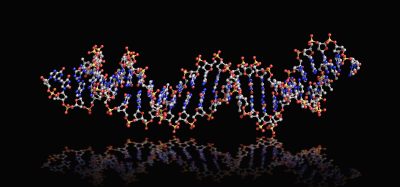Microbiota composition influences respiratory virus susceptibility
Posted: 1 February 2024 | Drug Target Review | No comments yet
The interactions linking intestinal microbiota with the functionality of basally resident alveolar macrophages and severity of infection are revealed.


Scientists at the Center for Translational Antiviral Research in the Institute for Biomedical Sciences at Georgia State University investigated how differences in specific microbial species can influence outcomes of respiratory virus infections, which has previously not been well defined. They reported that the composition of microbiota in the gut influences how susceptible mice are to respiratory virus infections and the severity of these infections.
Segmented filamentous bacteria
A bacterial species found in the intestines, named segmented filamentous bacteria, protected mice against influenza virus infection when these bacteria were either naturally acquired or administered. Also, this protection applied to respiratory syncytial virus (RSV) and severe acute respiratory syndrome coronavirus 2 (SARS-CoV-2). The segmented filamentous bacteria needed basally resident alveolar macrophages to maintain this protection.
Mice with discrete microbiome differences and mice differing in only the presence or absence of segmented filamentous bacteria were studied. Several days after infection, viral titers in the lung were measured. The researchers observed that they varied greatly depending on the microbiome of the different animal groups.
Biomarkers aren’t just supporting drug discovery – they’re driving it
FREE market report
From smarter trials to faster insights, this report unpacks the science, strategy and real-world impact behind the next generation of precision therapies.
What you’ll unlock:
- How biomarkers are guiding dose selection and early efficacy decisions in complex trials
- Why multi-omics, liquid biopsy and digital tools are redefining the discovery process
- What makes lab data regulatory-ready and why alignment matters from day one
Explore how biomarkers are shaping early drug development
Access the full report – it’s free!
Co-senior author of the study Dr Andrew Gewirtz, Regents’ Professor in the Institute for Biomedical Sciences at Georgia State, explained: “These findings uncover complex interactions that mechanistically link the intestinal microbiota with the functionality of basally resident alveolar macrophages and severity of respiratory virus infection.”
Basally resident alveolar macrophages
Basally resident alveolar macrophages were quickly depleted as respiratory virus infection progressed in segmented filamentous bacteria-negative mice. In segmented filamentous bacteria-colonised mice, basally resident alveolar macrophages were altered to resist influenza virus infection depletion and inflammatory signalling. These macrophages disabled the influenza virus, mostly by activating a part of the immune system called the complement system.
Dr Richard Plemper, co-senior author of the study, Regents’ Professor and director of the Center for Translational Antiviral Research at Georgia State, commented: “We find it remarkable that the presence of a single common commensal bacterial species, amidst the thousands of different microbial species that inhabit the mouse gut, had such strong impacts in respiratory virus infection models and that such impacts were largely attributable to reprogramming of basally resident alveolar macrophages.”
Dr Gewirtz added that the team think it is highly unlikely that segmented filamentous bacteria is the only gut microbe capable of impacting the phenotype of alveolar macrophages. He continued: “Rather, we hypothesise that gut microbiota composition broadly influences proneness to respiratory virus infection. Microbiota mediated programming of basally resident alveolar macrophages may not only influence the severity of acute respiratory virus infection but may also be a long-term post-respiratory virus infection health determinant.”
Dr Plemper noted: “If applicable to human infections, these findings will have major implications for the future risk assessment of a patient to advance to severe disease.”
The study was published in Cell Host & Microbe.
Related topics
Covid-19, Microbiome, Virology
Related conditions
Influenza, SARS-CoV-2
Related organisations
Georgia State University







